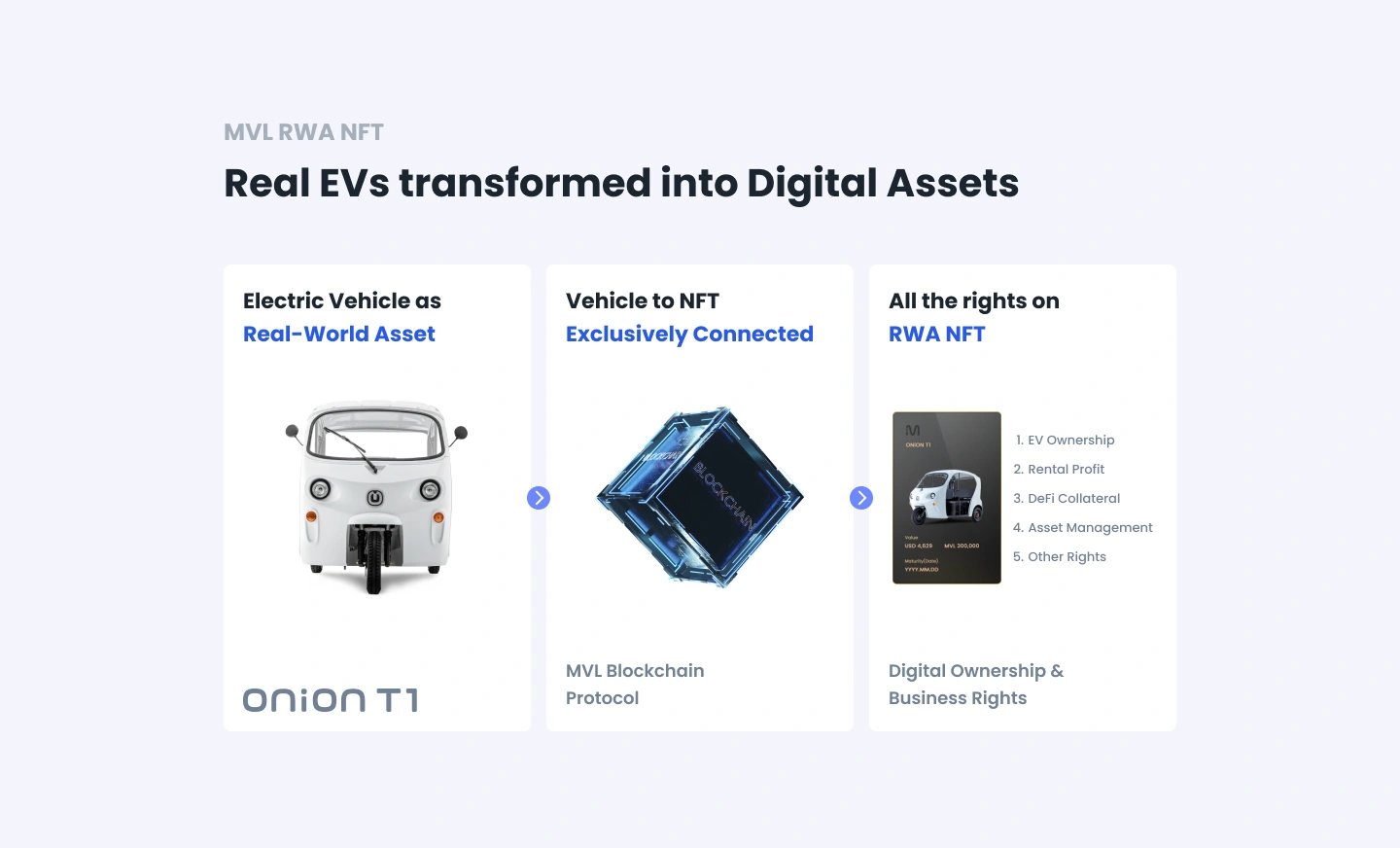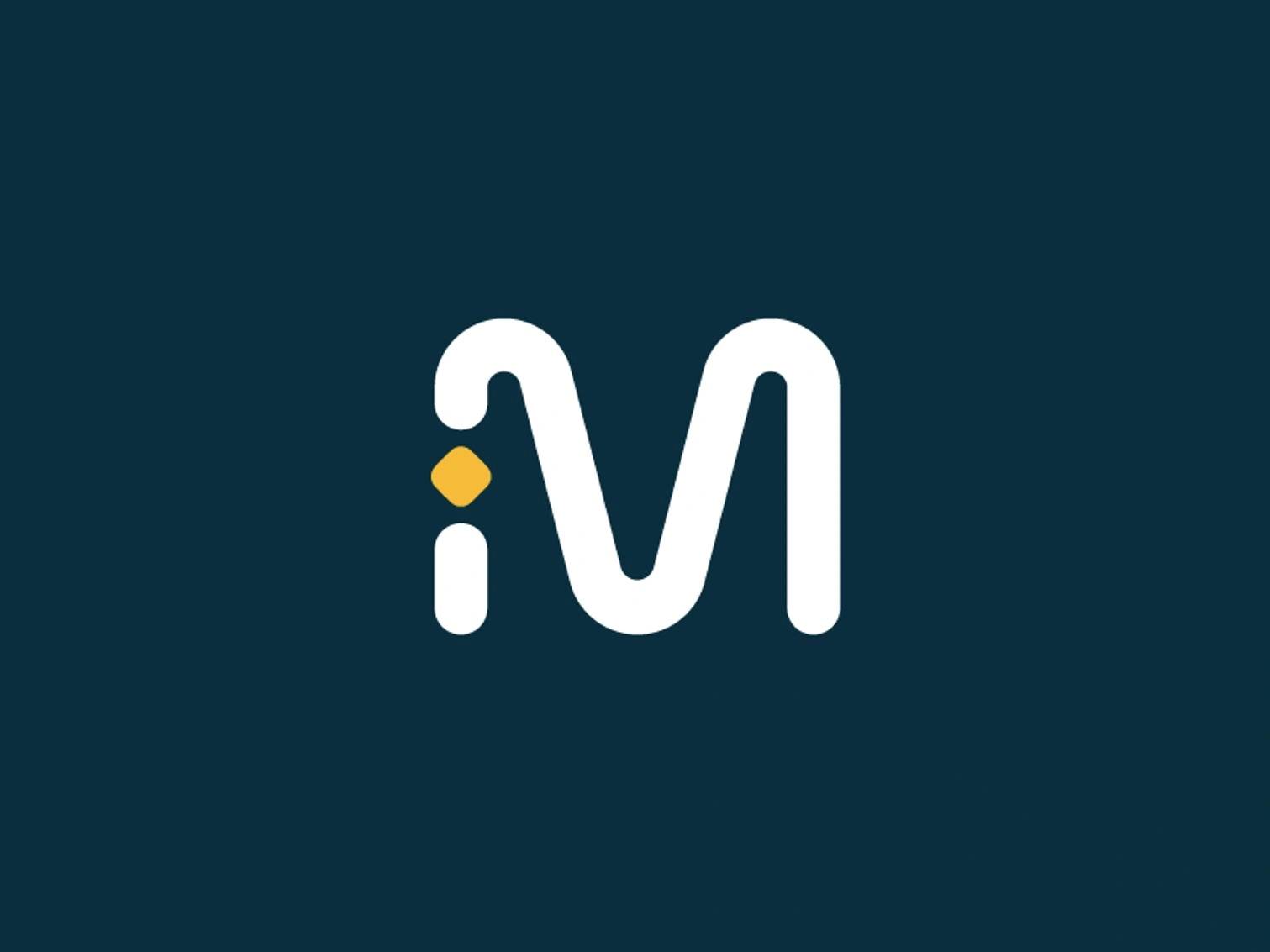Subscribe to wiki
Share wiki
Bookmark
Mass Vehicle Ledger (MVL)
We've just announced IQ AI.
Mass Vehicle Ledger (MVL)
Mass Vehicle Ledger (MVL) is an ecosystem that utilizes blockchain technology to improve connectivity within the vehicle industry. It offers benefits to various industry participants, including service providers, cab and ride-hailing drivers, insurance agents, and others. [4][1]
In the MVL ecosystem, users are encouraged to contribute data by receiving MVL Points (MVP) as a reward. This data encompasses a wide range of information, from feedback on professional driver services to repair experiences. MVP can then be utilized within the ecosystem, primarily by businesses for marketing opportunities. Users also have the option to exchange MVP for MVL tokens. [1]
One of the services provided within the ecosystem is TADA Driver, which offers a separate account for users' rewards. This account can be utilized for activities such as ride-hailing and other related purposes. [1]
Overview
Through the MVL Ecosystem, records of all activities associated with a specific vehicle are maintained throughout its "lifetime," ensuring the integrity of these records. Data stored on the decentralized blockchain remains under the sole authority of the owner. Various participants in the vehicle market can contribute reliable data and remain interconnected within a single ecosystem. [2]
The MVL Ecosystem implements a reward system where participants earn MVL Points (MVP) in exchange for accurately collecting and submitting data. By contributing various types of data, participants earn MVP, which they can use to showcase their business performance or exchange for MVL Coin (MVL). MVL can be traded among participants for goods and services like fuel, repairs, or car rentals, with all sellers of car-related goods and services required to be licensed and sales occurring within national boundaries. This system empowers individuals with accurate data to determine the value of used cars, eliminating reliance on traditional dealerships. [2]
Furthermore, participants can earn MVP by selling their vehicle data to self-driving car manufacturers or insurance companies through the MVL Ecosystem. The ecosystem utilizes MVL Points (MVP) primarily earned through active participation and MVL Coin (MVL) obtained by providing goods and services within the ecosystem to validate data on the blockchain. [2]
The MVL Ecosystem employs an effective reward system with MVL Points to incentivize participant engagement and reliable data collection. Additionally, it implements a system for participants to evaluate each other. [2]
Architecture
The MVL Ecosystem comprises three layers: Core, Service & Component, and Application. [2]
Core Layer (Blockchain Layer)
In the core layer, all data collected throughout a vehicle's lifespan will be stored in an external distributed storage system for increased capacity. Important information such as driving history, accidents, and repairs will be stored securely on the blockchain to prevent distortion or damage. Initially, MVL's blockchain will use Ethereum, transitioning to an independent blockchain later. Additionally, less frequently accessed data and larger files will be stored externally to optimize network efficiency. Data encryption will restrict access to authorized contributors. [2]
Service and Component Layer
The Service & Component Layer functions as an interface for MVL developers and third parties to access data from the Core Layer, enabling the creation of decentralized application programs (DApps). Services within the MVL Ecosystem can connect to the MVL blockchain exclusively through this layer. Following the ecosystem release, tasks like fast transactions and organizing core data will be facilitated. Additionally, this layer will provide API in SDK form, allowing for the development of various services or DApps within the MVL Ecosystem. [2]
Application Layer
This area utilizes MVL data to develop various services. DApps of all kinds are operationalized here, leveraging provided SDKs from the Service & Component Layer. Data collected by these DApps flows through the Service & Component Layer. The MVL team offers various services and supports other developers or services by supplying SDKs for major programming languages. Third-party developers utilize these SDKs to access vehicle data and contribute to the expansion of the MVL Ecosystem. [2]
Economic Model
The economic model of the MVL Ecosystem centers on MVL Coin (MVL), used for rewarding blockchain miners and facilitating interactions among participants. MVL Coin enables transactions for various goods and services within the ecosystem, including car-sharing services, vehicle parts, repairs, fuel, and vehicle purchases. Sellers of car-related goods and services must be licensed, and transactions occur within national boundaries. [2]
Before the completion of the MVL-developed mainnet, temporary MVL Tokens are issued, based on the Ethereum-based ERC20 standard, for seamless trading. These tokens can later be exchanged for MVL Coins. Initially, MVL Coin is obtained by purchasing MVL Token from the coin exchange market. After the mainnet launch, participants can earn MVL Coins through mining, contributions to the network, or service provision. [2]
Active contributions earn participants MVP (MVL Points), exchangeable for MVL Coins. Participants receive accounts and MVPs, indicating their platform dedication. MVL Points indicate performance and influence, earned through positive feedback and used for business promotion. MVL Coins are transferrable and tradable, while MVPs are not transferable or tradable, earned solely through MVL Coin use or contributions. [2]
MVL Coin (MVL)
MVL tokens are used within the MVL ecosystem for mining, staking, and in-app purchases. MVP earned can be exchanged for MVL Coin, which can be used for car-related expenses such as rentals, fuel, car washes, parts, and repairs. [1]
MVL Points (MVP)
MVP, or Mass Vehicle Points, are a form of digital rewards within the Mass Vehicle Ledger (MVL) ecosystem. They are earned by users who actively contribute to the ecosystem by providing feedback, data, or participating in various activities. These points serve as incentives to encourage participation and engagement within the MVL platform. Users can accumulate MVP through actions such as reviewing services, reporting experiences, or engaging with partnered businesses. Once earned, MVP can be exchanged for benefits within the ecosystem, such as discounts, access to exclusive services, or even converted into MVL tokens for broader utility. [1]
MVL Token
MVL Token functions as a Utility Token within the MVL Mobility ecosystem, usable across various services and products. It allows for actions such as purchasing coupons and swapping points in Clutch Wallet, as well as paying fees for partnership services and companies. [5]
Tokens were issued to incentivize participants to submit accurate driving, repair, registration, and other vehicle-related data using Ethereum. A total of 30 billion MVL tokens were issued, with private, pre-sale, and main sale phases allowing participants to purchase tokens and receive various rewards accordingly. [2]

During the token issuance event, 29 percent of the total tokens were allocated to participants. Once the MVL mainnet was ready, 16 percent of the total issued MVL Coins were injected into the MVL Pool over a 10-year period for point-to-coin exchange. [2]
A portion of the coins was also allocated for partnerships with vehicle services, marketing and promotion, development of MVL's blockchain, maintenance, DApp support, and other purposes. Additionally, coins were reserved for MVL team members who had been with the company for at least six years, as well as other investors and advisors. [2]
TADA Driver
The TADA ride-hailing service was introduced by the MVL team in Singapore on July 26, 2018. The TADA app gathers real-time car data from drivers and riders, which is utilized to achieve the System Optimum objective of the MVL Ecosystem. [3]
The MVL Mobility Incentive Protocol evaluates the contributions of drivers who complete more trips and passengers who regularly use the service. It compensates them with MVL tokens in proportion to their contributions. These tokens are backed by actual revenue generated from MVL's mobility businesses. [4]
ONiON E-Vehicle & Infra
ONiON Mobility, launched in 2021, specializes in electric vehicles and battery charging infrastructure. It operates a factory in Cambodia, producing battery-exchangeable E-TukTuks and E-Trucks. ONiON is also establishing a national energy network with E-Stations for charging infrastructure. [6]
To support vehicle sales, ONiON has developed driver credit evaluation technology and offers vehicle finance services based on credit quality. They also provide maintenance for eco-friendly vehicles and sell used cars. ONiON manages the entire life cycle of exchangeable batteries used in vehicles in real-time and operates numerous franchise charging stations. [6]
Future goals include expanding vehicle sales to various Asian countries. Additionally, ONiON plans to introduce new products such as electric bikes and offer real-time vehicle and battery management solutions using data. [6]
DePIN
DePIN, or Decentralized Physical Infrastructure Network, is a concept introduced by MVL (Mass Vehicle Ledger) in the blockchain industry. It involves building a collaborative mobility infrastructure network with users, primarily focusing on Southeast Asia. [7][8]
DePIN promotes decentralized infrastructure operation, allowing multiple participants to collaborate in managing data infrastructure and sharing its value. MVL's mobility DePIN can be categorized into three main parts based on service characteristics and the type of data collected from participants. [8]
Mobility Network
TADA, a ride-hailing service in Southeast Asia, serves over 3 million users across four countries. MVL's mobility network tracks users' movements and capital flows throughout the region, with each user contributing to a real-time trip network. Users receive MVL tokens as incentives based on their data contributions, which they can use within the service. [8]
The MVL DePIN website provides access to a portion of this mobility network data, including real-time trip requests, frequencies, and pick-up/drop-off locations. Data disclosure will gradually expand. [8]
TADA's DePIN data enhances mobility service quality and adds value when combined with other data. For example, it helps identify major call locations and traffic patterns, improving service accuracy. Collaboration with partners allows its use in real estate valuation, commercial analysis, and urban planning. [8]
E-Vehicle and E-Bike Network
MVL aims to enhance the reliability of key data, like vehicle model year and mileage in Southeast Asia, through collaboration with blockchain specialists. This framework enables investors to track their vehicle assets' location and review their driving history, boosting their confidence in investments. [8]
MVL's Real-World Assetization (RWA) initiative for vehicles involves combining vehicle life cycle data (vehicle DePIN) and financial data (private data) as Non-Fungible Tokens (NFTs) on the blockchain. [8]
Energy Infrastructure Network
MVL's DePIN also encompasses energy infrastructure, which includes a network of over 2,500 swappable batteries and 16 E-stations located in Cambodia's two largest cities. This energy infrastructure facilitates seamless integration with electric vehicles and other energy-dependent systems. [8]
MVL's energy infrastructure network involves the collaborative management of battery assets and the shared recording of battery life data with partners like PTT and Total Energy. Through partnerships and leveraging asset management and blockchain technology, MVL aims to introduce innovative products such as battery assetization (RWA), energy collaborative management networks, and other related offerings. [8]
RWA
The Vehicle RWA-NFT project integrates blockchain technologies like data management and NFTs into the mobility service, focusing on 'Vehicle Assetization.' This involves MVL's actual vehicle assets and rental finance, aiming to improve asset management transparency and utilize blockchain's capabilities for data security and authenticity verification. [9]

The rights to the vehicle, including both the vehicle asset itself and the revenue generated from rentals, are integrated into Non-Fungible Tokens (NFTs). [9]
All ONiON vehicles operational in Southeast Asia are connected vehicles, ensuring that essential ownership data such as real-time location, mileage, and relevant certificates integrate into the MVL protocol. Additionally, as these vehicles are leased to local TADA drivers, their monthly payments and financial data are synthesized into the NFT. [9]
In essence, owning MVL's Real-World Asset (RWA) NFT entails holding all rights to the actual vehicle, including ownership and rental income. This enables vehicles to be transformed into mainstream financial assets. [9]
See something wrong?
